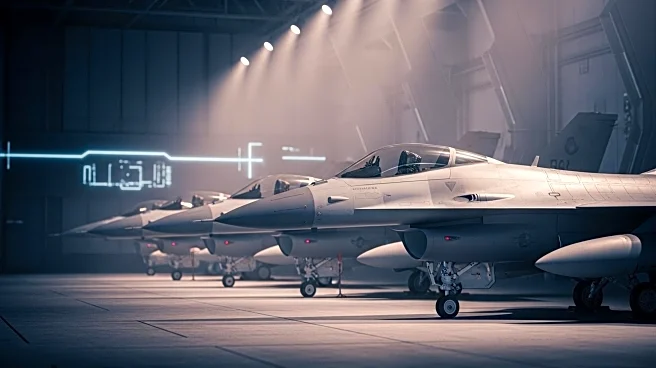What's Happening?
Finland and Sweden, NATO's newest members, have announced plans to purchase more U.S. weapons to support Ukraine, following a decline in foreign military aid to the country. This decision comes as NATO coordinates
regular deliveries of large weapons packages to Ukraine, aiming to provide predictable military support. The Prioritized Ukraine Requirements List (PURL) financial arrangement allows European allies and Canada to buy American weapons for Ukraine, with approximately $2 billion already allocated. Finland and Sweden's commitment to the PURL program reflects concerns over the decreasing trajectory of support for Ukraine.
Why It's Important?
The decision by Finland and Sweden to increase U.S. arms purchases for Ukraine highlights the ongoing geopolitical tensions surrounding the Russia-Ukraine conflict. As Western military aid declines, the commitment from NATO's newest members underscores the importance of maintaining support for Ukraine to counter Russian aggression. This move could influence other NATO allies to reassess their contributions and potentially increase their support. The situation also raises questions about the sustainability of military aid and the financial burden on European countries, particularly those facing economic challenges.
What's Next?
The announcement may lead to increased pressure on other NATO allies to contribute more to Ukraine's defense efforts. Discussions among Nordic and Baltic countries about additional support could result in further commitments. The U.S. may also face decisions regarding the provision of advanced weaponry, such as Tomahawk missiles, depending on the conflict's progression. The situation could prompt debates within NATO about equitable burden-sharing and the strategic priorities of the alliance.
Beyond the Headlines
The decline in Western military aid to Ukraine could have broader implications for NATO's cohesion and the alliance's ability to respond to future conflicts. The financial strain on European countries may lead to discussions about the balance between national defense spending and contributions to collective security. Additionally, the ethical considerations of arms sales and their impact on global security dynamics may become more prominent in policy debates.









